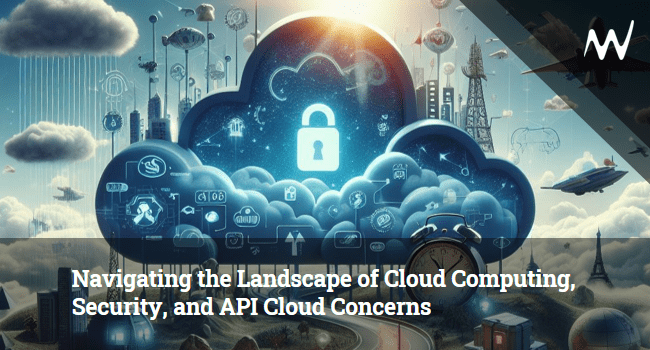Navigating the Landscape of Cloud Computing, Security, and API Cloud Concerns

What is Cloud Computing?
Cloud computing is defined as the delivery of Internet-based services through the use of remote servers. Instead of local physical servers or personal computers, data is shared, analyzed, managed, and stored in the cloud. Cloud computing enables business owners to store and access their technical data from anywhere through cloud services. Organizations are turning to cloud-based platforms to improve efficiency, saving costs, time, and effort associated with purchasing and maintaining servers. All computing resources are provided by cloud service providers (CSPs) such as AWS, Google, MS Azure, IBM, etc.
Types of Clouds:
- Hybrid Cloud:
- Combines two or more cloud infrastructures (multi-cloud).
- Allows interchangeability of applications or data between clouds.
- Offers flexibility and the ability to extend infrastructure.
- Private Cloud:
- Designed for company or corporate use.
- Sensitive information is distributed through a private network with authorized access.
- Enables the development of automated data centers in the cloud.
- Public Cloud / SaaS:
- Popular for SaaS-oriented software.
- Hosts software for public use, providing extensive configuration options.
- Also known as a software sharing model, supporting access from anywhere via a web browser.
Challenges in Cloud Security:
Cloud security is essential, and there are challenges associated with it. Key concerns include:
- Where is the data stored?
- What are the power and duties of those managing the data?
Latest Cloud Security Research Topics:
- Cloud-based tokenization
- Authentication, authorization, and access
- Data backup, restore, and replication
- Identification, analysis, and correction of vulnerabilities
- Endpoint Detection and Response (EDR) Security
- Intrusion detection and response systems
- Key Management (Exchange, Generation, Storage)
- Integrity management system
Cloud Security Challenges:
- Cloud security assessment problems
- Prejudiced insiders
- Providers’ rules and regulations on recruitment
- Data leakage/loss
- Irrefutable authentication, poor data security tracking, and policy
- Trust disputes with cloud providers
- Service, traffic, and account capture
- Technical defects in rapidly evolving cloud systems
- API uncertainty and issues
Security Features in Demand:
- Cloud protections
- Network security
- Software security
- Data security
- Introduction Security
- Security of cloud infrastructure
What is API Cloud Security?
API cloud computing security is crucial for users in public cloud and SaaS applications. It addresses privacy concerns, data security risks, data breaches, and various security threats. API differs from proxy-assisted CASB architecture as it operates as a native application. Security concerns include insecure cloud APIs, mobile device security, SQL injection attacks, and denial of service attacks.
Security Programs in Cloud Computing:
Typically, cloud security programs involve four actions: identifying and sourcing evidence, acquiring evidence, analyzing collected data, and submitting analytical reports. Each layer of the system is exposed to different types of attacks based on the service and environment.
To learn more, talk to our experts today. Book your free consultation now!
You may also connect with us by mail at info@wrinom.com.
